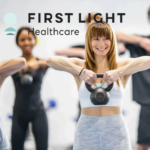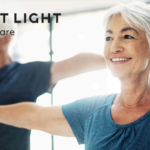LIVING WITH ADDICTION DURING COVID-19 with psychologist David Godden

David Godden is a registered psychologist specialising in trauma, addiction and family. David’s previous roles have included Director of Byron Private Treatment Centre, Director at the Australian Addiction and Trauma Treatment Centre, a therapist at The Buttery drug and alcohol facility and psychologist at Lismore Base Hospital Adult Mental Health Unit. He has gained a well-deserved reputation for excellence, both locally and further afield, for his work in the treatment of addictive behaviour and the trauma that underpins it.
Here, David answers some common questions regarding addiction and COVID-19. Details of where you can access support can be found at the end of this article.
What kind of challenges does ‘lock down’ present for someone with an addiction such as alcoholism?
For most people with an active addiction, lockdown will provide them with guilt-free drinking, because they are being told to stay at home and isolate.
However, for those who are in recovery and sober, this will be a very difficult time. When one enters recovery, they learn that isolation is the enemy and boredom is something that needs to be managed.
The key feature of recovering from an addiction is reaching out to others and being part of a community such as AA or NA.
This is something that most addicts struggle with, because addiction is such an isolated existence.
This is why organisations such as NA and AA are so important; because they take people out of isolation and provide connection and community.
COVID-19 and self-isolation will be thrusting individuals with a history of addiction back into feelings of isolation and no doubt feelings of wanting to use. There is a saying in recovery: “an addict alone is an addict in danger”.

What are some strategies for people with addiction issues during this time?
Stay connected as best they can and notice the triggers that can cause relapse.
This can be done through staying in contact with friends and others in recovery simply by making phone calls and catching up or attending an online meeting.
A daily exercise routine is also a great way to stay connected to the outside world.
A lighthouse walk can be great exercise, and you will encounter many other people who are doing the same.
How is AA and NA functioning during this time, are meetings still allowed? Are there online resources?
AA and NA are both offering dial in meetings so people can maintain their regular meeting routine and contact with others who are in recovery. The meetings are easy to access through the AA and NA website which provide a Zoom login and access to meetings every day of the week. Go to AA website or NA Website
COVID19 may present an opportunity for what was once under-control drinking to spiral out of control, do you have any advice for managing this?
If people who usually drink socially feel that their drinking has changed and their alcohol intake has increased they should seek the support of a therapist who has experience in this area, and discuss how the lack of social connection is impacting their emotional and mental wellbeing. Taking up a new interest or a new hobby can also be a great idea while in self-isolation.
Job losses, business closures and the like are stressful. Lock down can also cause loneliness and depression. All triggers for alcohol abuse. Do you have some tips for those who use alcohol or other substances to cope with stress?
Those who are experiencing hardship or depression through job losses or business closures should contact their GP or psychologist and discuss strategies to help them through this very difficult time. Strategies such as staying connected through exercise or Skype calls is a great way to support mental health and mood. However, for some people, their work or business has been their identity. Not only have these people lost their job, they can also feel as though they have lost their identity too. For these people it’s vital they get the support they need and contact a health professional if required.

If you or someone you know has a problem with alcohol or other substances, there are support services available.
Contact your GP and arrange a telehealth consult for a referral to a psychologist, or contact your psychologist for a telehealth consult.
Contact Alcoholics Anonymous on 1300 222 222 or go to AA website or NA Website
Call HealthDirect Hotline on 1800 022 222 to speak to a registered nurse about your health concerns. The hotline is open 24 hours a day, 7 days a week.
To arrange a consult with David Godden, call us on 6685 6326.



